Has investment banking lost its appeal among graduates from China’s elite schools?
Amid constant news of pay cuts and layoffs, an industry slump and tightened sector regulations, graduate hopefuls are feeling uncertain about their prospects in the once-lucrative investment banking field. Lianhe Zaobao journalist Liu Sha finds out more.
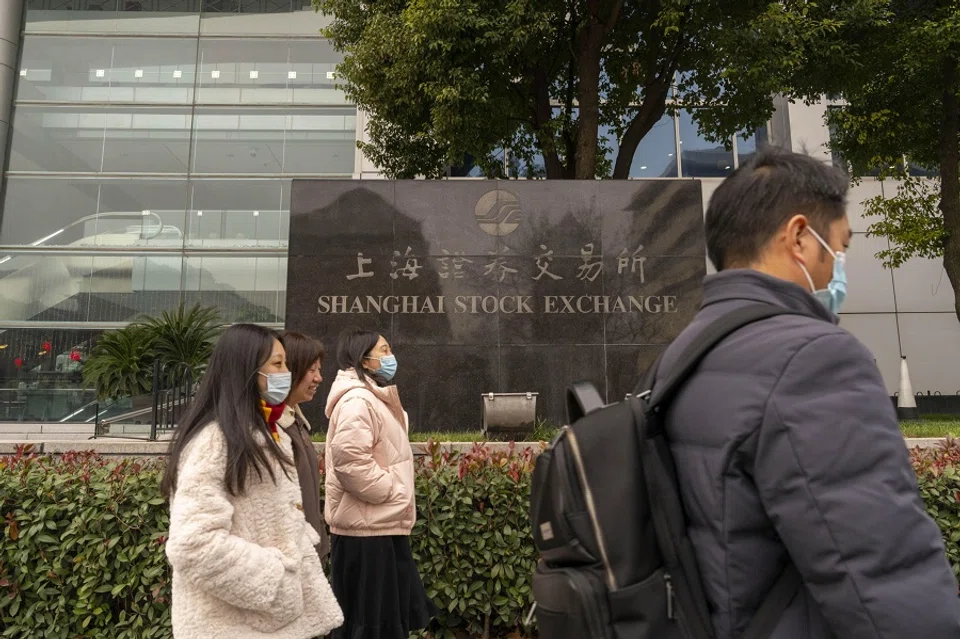
In April, six months into an internship at an investment firm in Beijing, 24-year-old Wang Xuan (pseudonym) was told by Human Resources (HR) that he would not be offered a full-time position. Wang was unexpectedly calm when he got the news, remarking: “I anticipated this.”
Signs of trouble emerged last year. He had come across reports of job cuts within the sector and got wind of discussions in the pantry regarding unpaid bonuses from the previous year. Senior colleagues openly expressed a desire to “lie flat” and resign themselves to the possibility of being laid off.
Wang sighed, “Longtime employees might receive a retrenchment package of up to a million RMB. With that sum, they can afford to take a gap year and recharge. But for fresh graduates like us, it’s all about facing the music — knowing when to move on and chart a new course.”
Wang studies finance at Peking University and still has a year to go before he graduates with a master’s degree. He started doing internships in his third year of university and has since accumulated experience from four internships at financial institutions. Despite this, he considers his internship count to be modest compared to the average business school student.
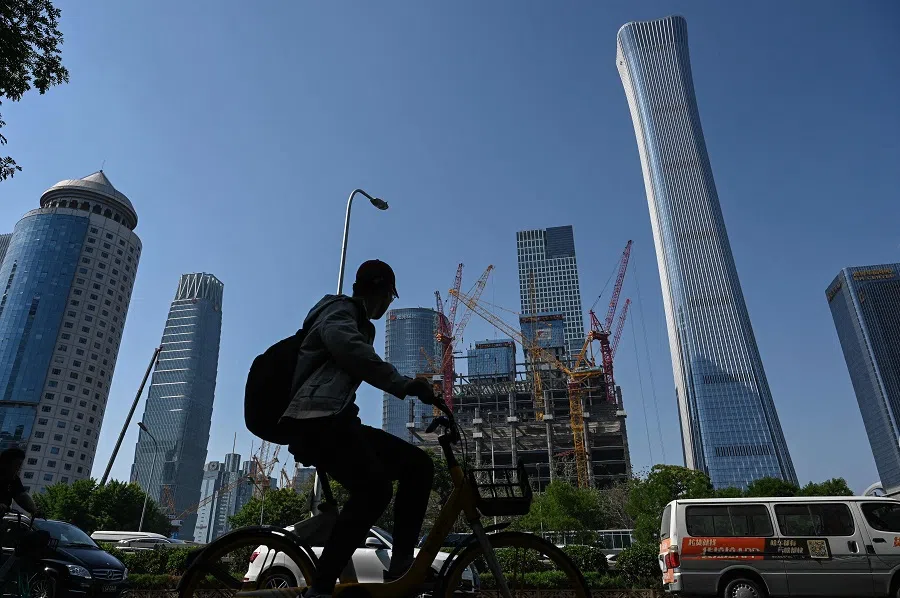
On the day he was told he would not be hired, Wang continued to work till midnight to send the next day’s meeting materials to his supervisor. He then resolved to shift his focus to autumn recruitment in June, targeting state-owned enterprises in the real economy.
Layoffs and pay cuts
Over the years, the financial sector has hired many of China’s most outstanding college graduates. The investment banking divisions of foreign investment banks and securities firms are often seen as the “crown jewel” of the financial sector, offering coveted “golden rice bowls” that attract graduates from top universities. Based on the employment report of Peking University’s Guanghua School of Management, investment banking has always been the top choice for graduates.
But since last year, the situation has changed. Amid news of pay cuts and layoffs, an industry slump and tightened sector regulations, graduate hopefuls are no longer certain about their prospects in the field.
... among China’s four major securities firms — CICC, CITIC, CSC Financial and Huatai Securities — Huatai Securities is the only one that can still offer fresh graduates a monthly salary of nearly 40,000 RMB.
According to the Securities Times, 60% of investment bankers experienced pay cuts last year, with the leading China International Capital Corporation Limited (CICC)’s annual per capita salary falling from 1.16 million RMB (about US$161,900) in 2021 to 700,000 RMB in 2023, a two-year contraction of almost 40%.
The salaries of employees at Central China Securities and Guotai Junan Securities also fell by over 10%. Quoting people familiar with the matter, The Economic Observer reported in May that CITIC Securities is set to impose a pay cut of around 20% this year, while CSC Financial is planning another pay cut after cutting salaries by about 20% earlier this year.

Salary changes for fresh graduate-pay are also obvious. Industry practitioners told Lianhe Zaobao that among China’s four major securities firms — CICC, CITIC, CSC Financial and Huatai Securities — Huatai Securities is the only one that can still offer fresh graduates a monthly salary of nearly 40,000 RMB. The salary of fresh graduates at CICC is about 28,000 RMB, which is nearly 50% lower than what most fresh graduates would expect.
More nerve-wracking than pay cuts are layoffs. Yicai reported in early May that CICC has decided to lay off one-third of the employees in its investment banking division. The investment banking team at foreign firms are also shrinking, with Bloomberg reporting that JPMorgan had already made two rounds of job cuts totaling about 50 positions in Asia last year. In April, Morgan Stanley, HSBC and Citibank also laid off investment banking staff in Hong Kong and mainland China.
An industry practitioner familiar with CICC told Lianhe Zaobao that while the firm still has the quota for school recruitments, it will focus on trading and research, with investment banking recruitments slashed by at least one-third compared with previous years.
... the main reason behind the wave of layoffs and pay cuts last year continues to be the diminishing market share of the investment banking sector.
Shrinking market and tighter regulations
Several industry practitioners revealed when interviewed that since 2022, the financial sector has been asked by the China Securities Regulatory Commission and professional associations to impose salary caps. Authorities have also mandated financiers to combat “financial elitism”. However, the main reason behind the wave of layoffs and pay cuts last year continues to be the diminishing market share of the investment banking sector.
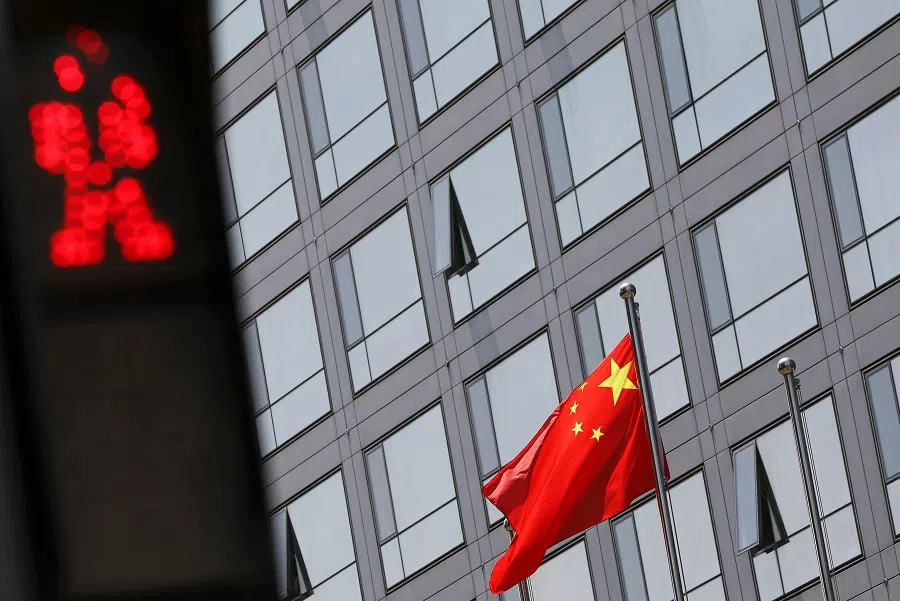
The main business of investment banking is to assist companies in their initial public offerings (IPOs), mergers and acquisitions and bond issuance. However, listings have been on the decline in mainland China and Hong Kong in recent years, while demand for mergers and acquisitions as well as bond issuance has been low.
The Securities Times referenced statistics from financial data provider Wind in a report which stated that there were 313 publicly-listed A-share companies last year, with total IPO funding at 356.5 billion RMB; the number of publicly-listed companies was down 115 firms year-on-year, with total funding down 39% year-on-year.
This has had a direct impact on the revenue of securities firms. According to data from the Securities Association of China, for 2023, the net income for 145 securities firms involved in securities underwriting and sponsorships was 48 billion RMB, down 17.83% year-on-year. In Q1 2024, the net income from investment banking fees for 43 publicly-listed securities companies totalled 6.74 billion RMB, down 35.8% year-on-year.
Shen Meng, director of Chanson & Co, analysed when interviewed that as China’s economic revival last year did not meet expectations, the stock market constantly trended downwards and investor confidence was dealt a huge blow. Consequently, authorities intervened with strict regulatory measures, penalising securities firms and investment institutions for irregularities like short selling and quantitative trading.
In April 2024, the Chinese State Council issued the new “State Council’s Nine-Point Guideline” for the capital market, emphasising strict control over access to IPOs, and tightening the supervision of listed companies.
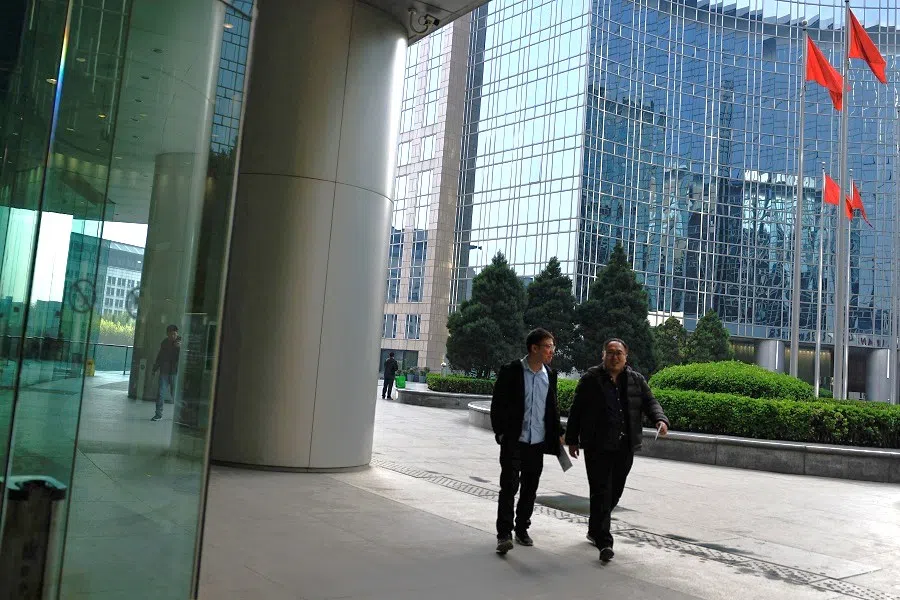
Shen remarked that the regulatory approach aims to improve the quality of listed companies and control new IPOs, which has had a certain stabilising effect on the market. However, this has led to the de facto suspension of IPOs; as intermediaries in the finance market, securities firms and investment banks are naturally impacted in terms of employment and compensation.
Investment banking and business demands are closely linked. It is difficult to liven up the capital market with no market demand. Shen opined that in the long run, IPOs would regain their rhythm but investment banking might not recover as quickly. This is because there is no sign of a strong revival at the macroeconomic level, given sluggish demand and low investor confidence.
‘Involuted’ and tiring service role
Tertiary students interning at investment banks also felt the downward pressure of the industry. Wang’s team is responsible for some bond issuance work. He observed, “Often we would prep the materials, conduct industry research, build revenue models and so on, only for Party A — that is, the company — to decide not to proceed.”
He also described his other internship experiences as extremely “involuted” and tiring, but there were fewer instances of having to work towards projects that were eventually aborted.
Wang was befuddled by this but his mentor reassured him, saying that the disappointing outcomes stemmed from unfavourable timing for bond issuance and public listings, rather than any shortcomings in their preparatory work. But Wang was even more anxious upon hearing this; “I realise how passive the finance industry is, and how powerless it is in the face of macro changes.”
“Behind the glitz and glamour of investment banking, it is in essence a service industry.” — Jia Liang (pseudonym), a graduate student at Shanghai’s Fudan University
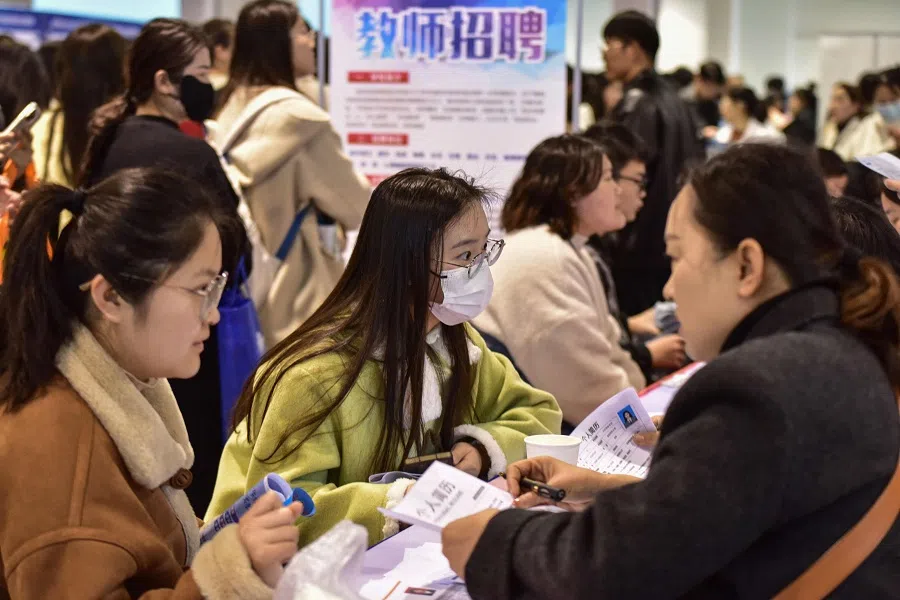
Jia Liang (pseudonym), a graduate student at Shanghai’s Fudan University with internship experience at seven different finance organisations, echoed the same sentiment.
When Jia was interning at an investment department of a securities firm in Shanghai in 2022, they were tasked with sourcing promising assets for acquisition and merger by a company. To secure the deal, Jia and his team pored over a copious amount of projects, leaving no detail unchecked in their preparation, right down to the nuances of font size, typeface and typesetting.
He said that “with fewer business opportunities, each project became even more ‘involuted’.”
While the project was not finalised by the end of his internship period, Jia later learned that the client chose to work with another securities company they were more familiar with.
Jia added, “Behind the glitz and glamour of investment banking, it is in essence a service industry; people have to give it their all — dedication and resourcefulness.”
He shared with his friends an article about how retrenched investment bankers in Hong Kong switched to selling insurance, and commented that “both are service roles, there is no difference in prestige”. Jia, who had targeted investment banking since his undergraduate days, has already switched tracks; he is set to work at the research department of a securities firm.
“... nowadays, the students have mellowed. They are less fixated on chasing the sheen of investment banking.” — a counsellor from the University of International Business and Economics

Is the allure of investment banking no longer attractive to fresh graduates? A counsellor from the University of International Business and Economics told Lianhe Zaobao that under the current employment circumstances, fresh graduates are very sensitive to changes in the industry, and they value long term development and stability more.
She said that investment banking is still an attractive option, with many students accumulating internship experience in the field. However, as they delve deeper into its challenges during internships, the allure diminishes.
The counsellor added, “In the past, students with good grades who failed to get internships at investment banks would become extremely anxious, sometimes even to the point of tears. However, nowadays, the students have mellowed. They are less fixated on chasing the sheen of investment banking.”
This article was first published in Lianhe Zaobao as “降薪裁员不断 投行对中国大学生吸引力减弱”.


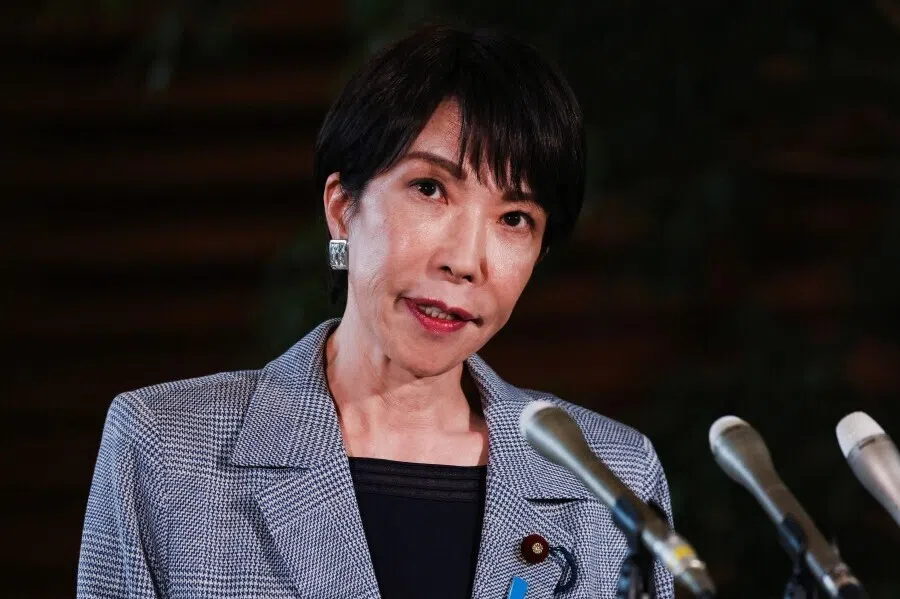

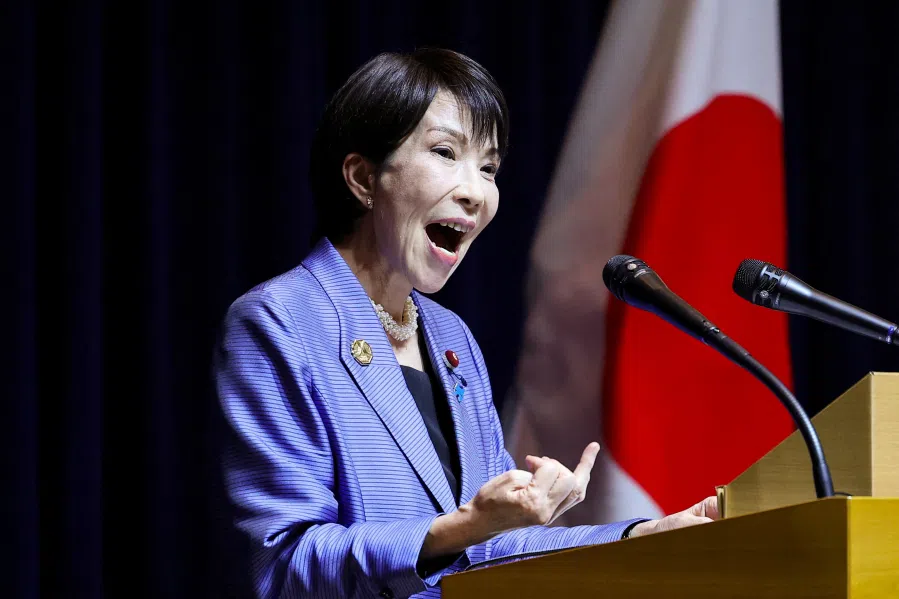
![[Big read] China’s 10 trillion RMB debt clean-up falls short](https://cassette.sphdigital.com.sg/image/thinkchina/d08cfc72b13782693c25f2fcbf886fa7673723efca260881e7086211b082e66c)